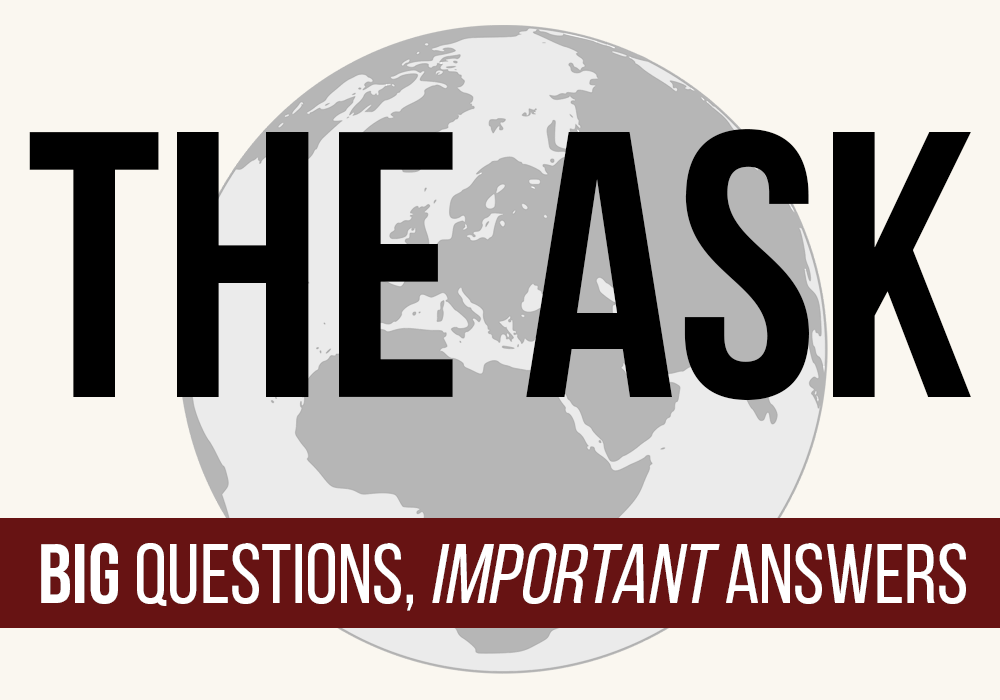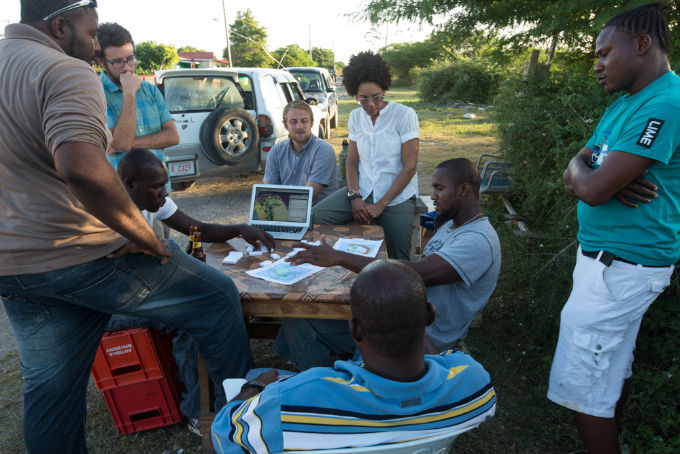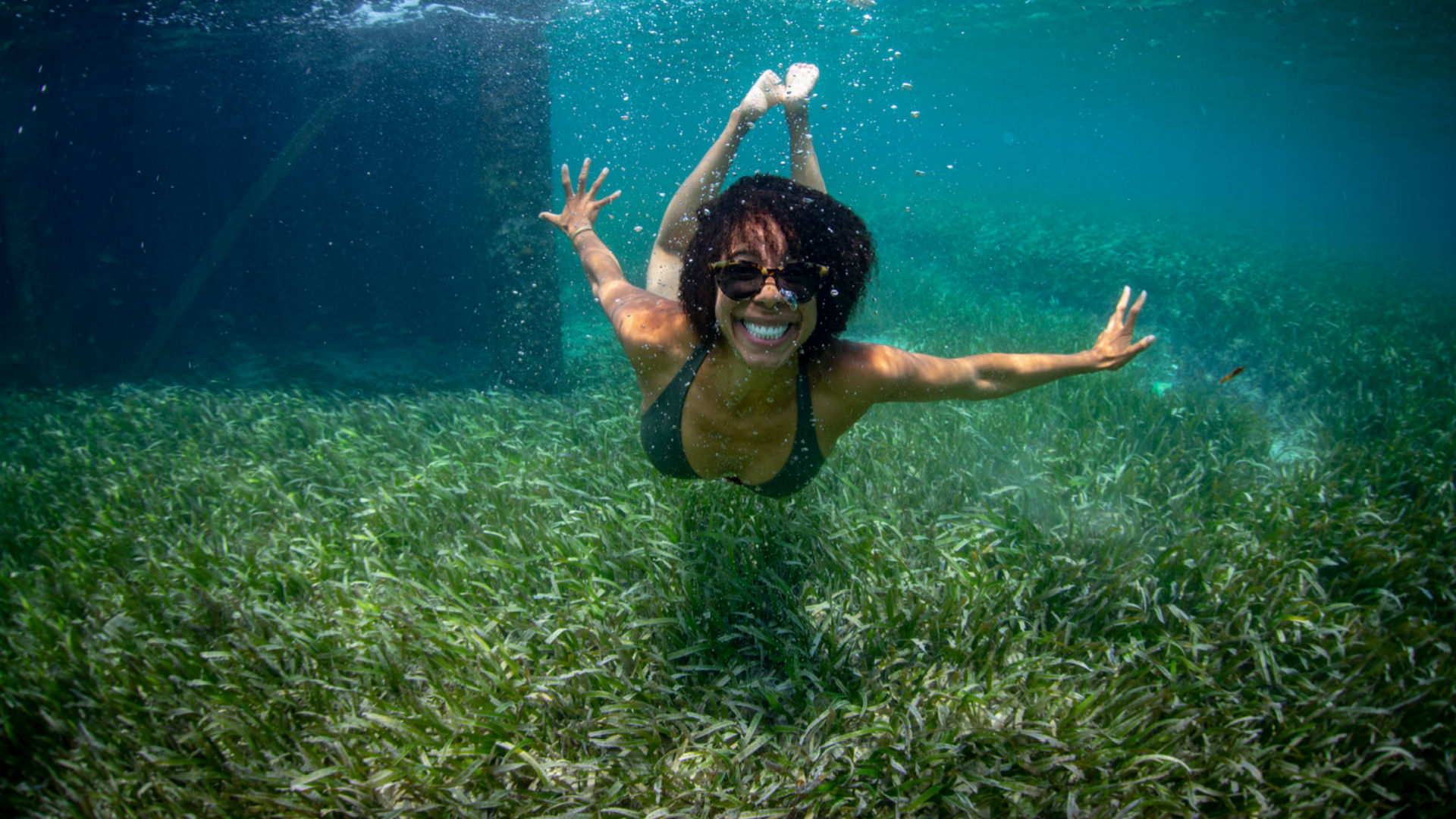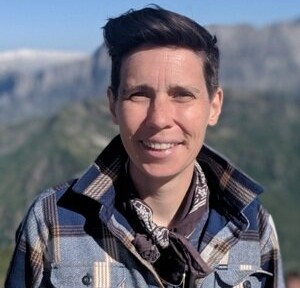Oceans stretch across 70 percent of our planet, and the vast majority of the world beneath them is unmapped and unexplored. Their depths may still hold many secrets, but we know they face serious risks from overfishing and pollution. The biggest threat of all is climate change, which could affect billions of people in coastal communities, says marine biologist and conservation strategist Dr. Ayana Elizabeth Johnson.
Johnson is the founder and president of Ocean Collectiv, a strategy consulting firm that looks at conservation solutions through a social-justice lens. Developing those solutions has never been more necessary. As Johnson says, “The lack of public and corporate reaction and response to the recent Intergovernmental Panel on Climate Change report — which tells us we have 12 years maximum to avoid catastrophic climate change — is terrifying.”
We talked to her about what’s at stake and the types of solutions she thinks are most promising.
In order to protect our oceans, what policy changes do we need at the national and international levels?
The top three are ending the use of fossil fuels, closing the high seas to fishing and protecting 30 to 50 percent of the coastal ocean.
Beyond policy, what else should we be focusing our efforts on? Enforcement? Public engagement? Technology?
We need to be pressuring corporations to adopt sustainable practices ASAP and to raise the bar for what qualifies as sustainable. For example, some of the fisheries being certified as sustainable by the Marine Stewardship Council are far from deserving of that label.

From an environmental-justice standpoint, who stands to lose the most if we fail to adequately protect ocean and coastal ecosystems?
Poor people and people of color in coastal communities will be most at risk. Sea-level rise, overfishing, pollution and coastal development affect them first and worst, and they have the fewest options for alternative livelihoods or relocation.
What ocean-related issues did you follow in this year’s election cycle?
Climate change! I’m excited that Andrew Polis has been elected governor of Colorado on a platform of getting Colorado to 100 percent renewable energy by 2040, the most ambitious goal yet for any state.
On the flip side, ballot measures across the country to restrict drilling and accelerate shifts to renewable energy failed amidst heavy oppositional funding from the fossil-fuel industry.
However, because the Democrats won the House, Congresswoman Eddie Bernice Johnson, who lists climate change science and mitigation as priorities, is poised to take the helm of the science committee, which is cause for hope.
What’s one of the best solutions you’ve seen used to combat an ocean-related problem or to help people who depend on the ocean?
Ocean farming. Regenerative ocean farming, as pioneered by Greenwave and others, means growing seaweed and shellfish (oysters, mussels, clams) — not constructing more salmon farms. Seaweed and shellfish don’t need to be fed; they grow with just sunlight and the nutrients and plankton already in seawater.
As pioneering ocean farmer Bren Smith put it, “the real kicker” is that these low-maintenance ocean plants and animals “require no fresh water, no deforestation and no fertilizer,” plus they improve water quality and create habitats for other species.
Because seaweed grows so quickly (kelp can grow over one foot a day) it can provide healthy food and clean biofuels while being a significant part of the climate solution. And developing this industry creates good jobs. (There’s more about this in my recent article in Scientific American, co-authored with my mom: “Soil and Seaweed: Farming Our Way to a Climate Solution.”)
Also, Mr. Trash Wheel. It collects trash from rivers or harbors before it ends up in the sea. So practical and effective — solutions don’t need to be high-tech.



1 thought on “What Are the Biggest Challenges for Saving the Oceans?”
Comments are closed.